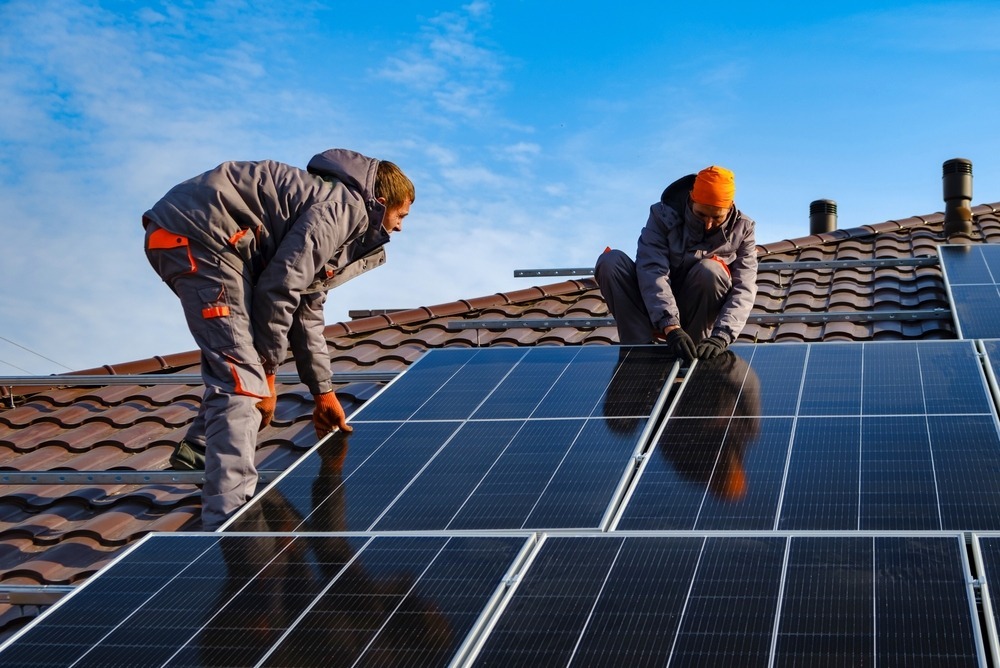Timing is everything. When it comes to solar energy, striking while the iron is hot—meaning right now—can maximize financial returns, take advantage of government incentives, and secure a greener planet for future generations.
Understanding Solar Energy
Solar energy is power derived from the sun’s radiation, harnessed using technologies like photovoltaic (PV) panels and concentrated solar power systems. This clean, inexhaustible energy source can power everything from small homes to massive industrial operations without emitting greenhouse gases.
A Glimpse into Solar Energy Growth
Statistics don’t lie. According to the International Energy Agency (IEA), solar energy is now the cheapest form of electricity in history. Countries across the globe are ramping up investments, with solar capacity predicted to triple by 2030. This booming industry is an open invitation for savvy investors and eco-conscious homeowners alike.
Environmental Benefits of Solar Energy
One of the most compelling reasons to invest in solar energy is its role in combating environmental degradation. Solar panels reduce reliance on fossil fuels, helping to cut down harmful carbon emissions. Each installed system is like planting hundreds of trees, offsetting tons of carbon annually.
Financial Advantages of Solar Investments
If saving money sounds appealing (and honestly, who wouldn’t agree?), then solar energy offers a golden ticket. Homeowners can slash electricity bills dramatically—often by 50-90%. Over 20 years, that could mean tens of thousands of dollars saved. Plus, with net metering, excess power can be sold back to the grid, creating another source of income.
Government Incentives for Solar Energy
Financial incentives are a game-changer. From federal tax credits to local rebates and grants, investing in solar has never been more financially rewarding. The U.S. government currently offers a 30% federal solar investment tax credit (ITC), while many states and municipalities offer additional savings.
Solar Technology Innovations
Solar tech is advancing at lightning speed. Panels are now more efficient, capturing more sunlight with less surface area. Breakthroughs like bifacial panels, solar roof tiles, and thin-film technologies are making solar more accessible, adaptable, and affordable.
The Decreasing Cost of Solar Panels
Solar panel prices have dropped nearly 90% since 2010. Thanks to technological innovation and mass production, solar energy is now within reach of the average homeowner. Installation costs are lower, financing is easier, and the return on investment is faster.
Energy Independence with Solar
Imagine not being at the mercy of fluctuating utility prices! Solar energy offers that freedom. By generating your own electricity, you’re insulated from blackouts, price hikes, and supply shortages. True peace of mind.
Solar Energy and Property Value
Homes with solar installations sell faster and at higher prices. Studies by Zillow show that solar-equipped homes can fetch up to 4.1% more than similar homes without solar systems. It’s a win-win: saving now and profiting later.
Solar in Residential vs Commercial Settings
While homeowners benefit from slashed utility bills, businesses enjoy significant overhead reductions, enhanced brand reputation, and tax write-offs. Whether you’re running a cozy café or a sprawling corporation, solar energy offers measurable advantages.
The Role of Solar in Combating Climate Change
Climate change is no longer a distant threat—it’s a current reality. By switching to solar, you directly contribute to reducing carbon emissions and dependence on non-renewable resources, ensuring a habitable Earth for future generations.
Long-Term ROI of Solar Energy
Solar systems typically pay for themselves within 5–7 years. After that, it’s pure savings for up to 25 years or more. That’s an unbeatable return on investment that few other assets can guarantee.
Solar Energy and Job Creation
The solar industry isn’t just powering homes—it’s fueling economies. In the U.S. alone, the solar workforce has grown by 167% in the past decade. Investing in solar supports a thriving green economy, creating high-paying jobs nationwide.
Debunking Solar Energy Myths
Some believe solar energy is too expensive, unreliable, or complex. In reality, today’s systems are highly efficient, affordable, and surprisingly easy to maintain. Myths like “solar only works in sunny climates” have long been busted—solar panels perform remarkably even in cloudy conditions.
Choosing the Right Solar Provider
Your installer matters. A reputable provider ensures quality equipment, professional installation, and reliable service. Look for certifications, warranties, and positive customer reviews before signing any contract.
Financing Options for Solar Projects
Cash purchase, solar loans, leases, and power purchase agreements (PPAs) provide flexible pathways to go solar. Each has pros and cons, but all offer a route to immediate savings and long-term gains.
Solar Energy Storage Solutions
Batteries like the Tesla Powerwall allow homeowners to store excess energy for nighttime use or during outages. Storage technology boosts solar’s reliability and enhances energy independence.
Grid-Tied vs Off-Grid Solar Systems
Grid-tied systems are cost-effective and benefit from net metering, while off-grid systems offer complete independence. Your choice depends on your goals, location, and budget.
Maintenance of Solar Systems
Solar panels require minimal maintenance—just occasional cleaning and periodic inspections. Most reputable systems come with warranties of 20–25 years, ensuring long-lasting performance with little hassle.
Resale Value of Solar Homes
Solar homes don’t just sell for more—they sell faster. Buyers are increasingly prioritizing energy efficiency and sustainability, making solar a major selling point.
Solar Energy in Rural vs Urban Areas
In rural areas, solar can power off-grid homes and farms. In urban settings, it can help dense populations reduce reliance on strained grids. Solar energy is a versatile solution that transcends geography.
Predicting the Future of Solar Energy
With ongoing innovations like perovskite cells and solar skins, the future looks dazzlingly bright for solar energy. Experts predict that by 2050, a significant portion of global electricity will be solar-powered.
Combining Solar with Other Green Technologies
Pairing solar panels with electric vehicles, smart thermostats, and energy-efficient appliances multiplies your savings and sustainability efforts, creating a holistic green lifestyle.
Common Mistakes to Avoid When Going Solar
Skipping research, ignoring local regulations, or choosing the cheapest installer can backfire. Take your time, understand your needs, and work with experienced professionals to avoid pitfalls.
Community Solar Projects
Even renters or those with unsuitable roofs can join community solar projects, buying into a shared solar farm and receiving credits on their utility bills. Solar for all, truly!
How Businesses Benefit from Solar Energy
From tax advantages to improved public image, businesses have much to gain. Sustainable practices also attract eco-conscious consumers and investors, building a loyal customer base.
FAQs About Solar Energy Investments
Is solar energy really worth it financially?
Absolutely! Most homeowners recoup their investment within 5-7 years and enjoy decades of free electricity.
How long do solar panels last?
High-quality panels can last 25–30 years or longer with minimal maintenance.
Can I still get incentives after 2025?
Yes, although some programs are scheduled to phase out or reduce, making now the best time to act.
What happens if I move after installing solar?
You can transfer your solar agreement to the new owner or recoup your investment through a higher resale price.
Does solar work during blackouts?
With a battery backup, yes! Without one, grid-tied systems typically shut down for safety reasons.
Is my home suitable for solar panels?
Most homes are! A free consultation can quickly determine your property’s solar potential.


